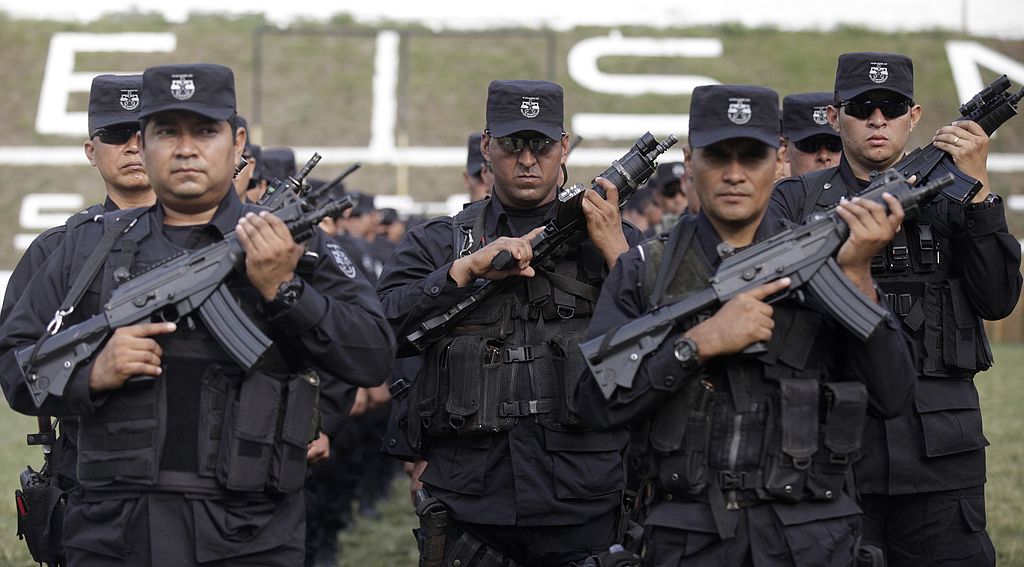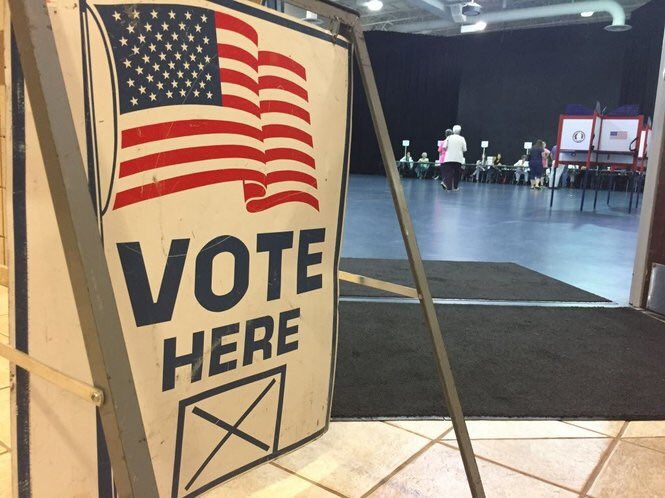Returning to the topic of El Salvador in the portal that discusses the presence of the Latino/Hispanic community in the United States may seem beyond our scope. But as previously discussed in another analysis, there is a special concern in the United States government about matters pertaining to the so-called “
Northern Triangle of Central America”, as we discussed on December 8, 2021, the violence related to drug trafficking, which supplies the US market and the immigration flow that presses the border with Mexico. In the 1980s, Reagan's then ambassador to the United Nations, Jeane J. Kirkpatrick, called Central America "the most important place in the world for the United States today", because at that time the Sandinista government of Nicaragua and the Guerrilla groups from El Salvador and Guatemala
challenged Washington's imperialism in the region. Currently, the US establishment is once again concerned about the region due to a greater commercial and economic presence of the People's Republic of China in Latin America. On March 8, 2022, during a congressional hearing, the commander of the US Southcom, General Laura Richardson, stated that China is the “number one”
challenge around operation of her Command. Particular attention was given to the investments of the “Belt and Road” Initiative, namely in Panama, Argentina, and Colombia.
There is still an additional concern for Washington that relates to the criminal gangs known as "maras". These groups, such as Mara Salvatrucha-MS-13 and Mara Barrio 18, developed in the United States, especially in California, constituted by young immigrants from Central America. Subsequently, they extended to the countries of origin of these immigrants, mainly El Salvador, where illicit activities were associated with international drug trafficking. Many of the problems related to these gangs spread from the United States to El Salvador and vice versa. Hence, we have a special look at the Salvadoran context.
State of Exception
On March 27, the Congress of El Salvador approved, by a large majority, the request made by President Nayib Bukele to institute a state of exception in the country for a period of 30 days. The decree passed suspended the right to freedom of assembly and association, the right to defense, restricted the detainee's right to be informed of the reason for his detention, to have the right to a defense lawyer, and to the appropriate legal guarantees. It also suspended the right to the inviolability of correspondence and the interception of communications without the need for a court order. In addition, it extended the period of administrative detention and authorized the National Civil Police to detain anyone it deems a suspect for investigation. According to a statement from the National Assembly of El Salvador; “The approval of the emergency regime is an important tool that the Legislative Assembly grants to the Ministry of Justice and Public Security (“Ministerio de Justicia y Seguridad Pública” – MJSP) to act without obstacles in the face of the increase in violent deaths. This measure will allow institutions that guarantee the security of the territory, protect the life, physical and moral integrity of Salvadorans and act decisively against groups outside the law that
have seriously disturbed public order”.
This drastic measure was adopted after a wave of murders that took place last weekend and that tends to destabilize the country. According to the newspaper opposed to Bukele, “
El Faro”, between March 25 and 27, 70 people were murdered in different departments of the country, the highest number in 20 years. Most of the killings took place in territories controlled by Mara Salvatrucha-13 (MS-13). But, according to data from the Workers' Movement of the National Civil Police, also according to El Faro, victims who died violently did not necessarily have a history of connection with criminal gangs, since at least 30 people killed worked or carried out activities. economic background and had no criminal record, such as street vendors, bakers, motorcyclists, and construction workers.
The “
Latino Observatory” had drawn attention to the situation in El Salvador on December 16, days after the US government sanctioned several authorities in the country. The argument used by the Department of Justice was to penalize authorities who were linked to corruption and to criminal networks operating in the Central American country and in the United States, the so-called “maras”, and because of constitutional changes that displeased the government of Washington. At that time, we speculatedd that the escalation of sanctions against the government of El Salvador had a strong geopolitical component in order to contain China's presence in Central America.
Well, we’re not familiar with all the facts involved in the Salvadoran problem, but as scholars of Foreign Affairs, it is feasible to formulate some questions, such as: why the destabilization of El Salvador occurs at a time of great international turmoil, notably with the war in Ukraine that pits the United States and NATO against Russia? What justified the series of attacks organized by Mara Salvatrucha-MS-13, precisely when the Bukele government was accused of having guaranteed its victory in the 2021 legislative elections because of the
support of criminal groups? How does this relate to the country's greater engagement with China? These are very difficult questions to be answered, but the simple formulation is already a reflection of the concerns that arise in this very complex international context.
Regarding the current context, it is interesting to mention the opinion of Ricardo Valencia,
in El Faro, on June 8, 2021, about the growing distrust between the government of Joe Biden and Nayib Bukele. Valencia leaves a veiled threat to the Salvadoran leader: “If the rift with the United States deepens, as Bukele seemed to imply in his state of the nation speech on June 1, I don’t think he will want to side with China if Washington accuses him of promoting Beijing’s agenda. As a former U.S. diplomat once told me, ‘When Washington wants to fight, they do fight’. This means that when Washington sees you as a geopolitical problem, the United States can choose from a wide range of responses, some more diplomatic than others. […] The United States has approached its dispute with the Bukele administration cautiously. […] Bukele’s approach to achieving “sovereignty” is to consolidate his autocracy, but Washington wants to limit his sphere of influence to the country’s 21,000 square kilometers of territory. Washington doesn’t want to fight, but if the Salvadoran president hitches his wagon to Beijing, Biden will be forced to act. If the United States decides to fight, it has thousands of ways to turn El Salvador into a golden cage for Bukele’s new economic and political elite”.
Another element is worth incorporating into the analysis: the position of the Bukele government in the vote at the UN General Assembly on March 2, which discussed the Russian invasion of Ukraine. On that occasion, El Salvador, Nicaragua, Cuba, Bolivia, and Venezuela refrained from condemning the government of Vladimir Putin. In other words, the Salvadoran government has once again set itself up against the government of Joe Biden.
It is worth noting that for the United States, any position other than alignment is understood as contrary to its interests. This was made very clear in an interview by Juan Gonzalez, director for the Western Hemisphere of the National Security Council, for the America's Quarterly magazine podcast on March 3, in which he stated that there was no room for neutrality on the issue of the war between Russia. and Ukraine. “At this point you have to choose a side, and I think, without specifying any country, that the articulation of neutrality is a
rationalization for not wanting to take a position”.
It is interesting to note that after the publication of Valencia's article, tensions between Washington and San Salvador have grown exponentially, even more so with the events unfolding in Ukraine. If the situation of the Bukele government was already worrying before the war, its situation tends to worsen. The sanctions against Salvadoran authorities adopted in 2021 were very comprehensive, reaching a significant part of the country's political elite. In this sense, the decision to adopt a “state of exception” reinforces the perception that their enemies are not limited to the maras.
Hence reinforcing the questions: are the increase in social instability in El Salvador and the terrorism applied by maras last weekend related in any way? Has the United States initiated a “regime change” operation in the country? Let's go back to Ricardo Valencia's words: did the United States decide to fight? Can Bukele's destabilization account for a strategic realignment of the United States in Latin America in the face of competitors such as Russia and China?
 commons.wikimedia.org
commons.wikimedia.org











